
OR
Govt officials sought kickbacks from an ICT-based project, say schools
Published On: June 28, 2021 11:12 AM NPT By: Republica | @RepublicaNepal
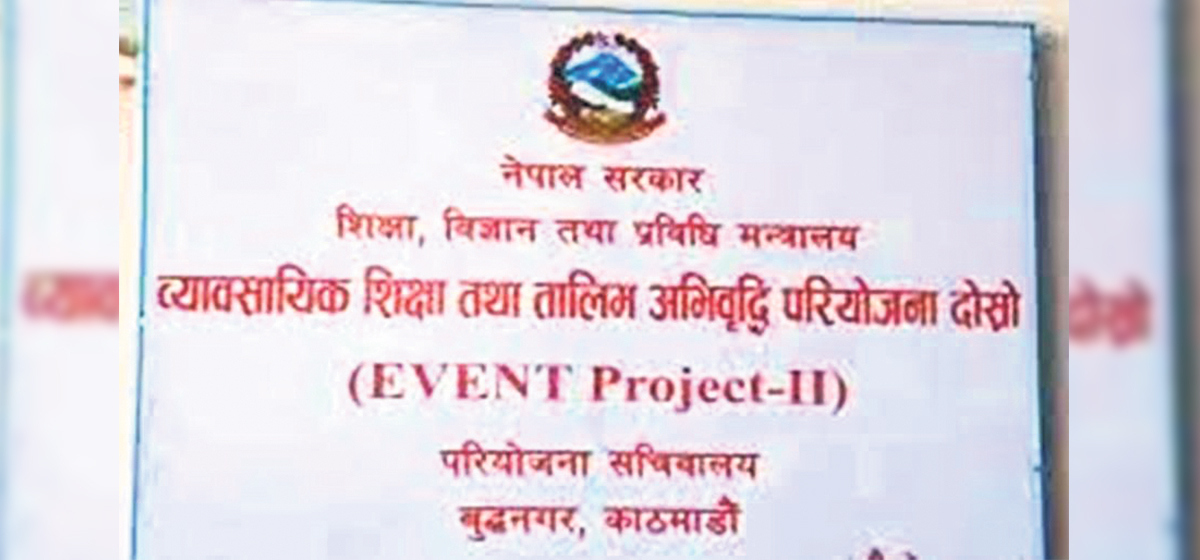
KATHMANDU, June 28: The School Management Committees of the government-run community school have complained that the project officials are asking for kickbacks from an initiative to empower rural schools to conduct virtual classes.
The Ministry of Education, Science and Technology is implementing a ICT-based class program in 40 different community schools under the Enhanced Vocational Education and Training Project-Event (Second) with the financial assistance from the World Bank Group. The Bank in 2017 had agreed to provide US $60m to run the project. With the beginning of the pandemic and the need for online classes in rural schools, an ICT-based classroom program was agreed last year under the same project.
The program aims to equip 40 different community schools with ICT facilities in the current FY and plan to add another 60 rural schools in the next FY, with a support ranging from high‐quality internet, electricity and related infrastructures. Despite the establishment of Technical Education in Community School (TECS) a decade ago, a majority of these schools are facing difficulties to adopt ICT as a means of teaching and learning process due to lack of ICT equipment, materials and skills. The project seeks to support these schools to run virtual classes in the pandemic. Along with the establishment of the facilities, the project seeks to train teachers to make them capable of running online teaching learning practices.
Under the ICT-based Classroom Support program, these 40 schools are entitled to receive a grant assistance of 3.2 million rupees each, with 40 percent payment in the first installment and remaining 60 percent in the second. All the schools under the program have recently received their first installment--to the tune of 12 lakhs 80 thousand rupees. The remaining 60 percent payment is to be made after ensuring that the progress has been as per the agreement.
However, a few beneficiary school management committee members have told Republica that the related project officials have asked them to return 1.2 million rupees as kickback.
"They asked us to return a certain amount after receiving the second second installment in our account, " a member, who wished not to be named, told Republica. A member of another school management committee also revealed that the unwanted requests were made to them as well.
Though the program was slated to commence early in the current fiscal year, a significant time was spent on preparing a concept note and manual before asking eligible schools to submit their Expression of Interest (EoI) to receive the grant. Of the total 70 aspiring schools, 40 were selected a month ago to run the program.
A project official based in Kathmandu Event-II office told us that around 200,000 rupees is earmarked for teacher training and almost all the allocated amount is being spent on purchasing and installing monitor, CCTV camera, server, smart board, solar hybrid inverters, printers and scanners, laptop and other related devices. Saying the administrative cost for the project is non-existent, the official hoped that the project would be able to meet current FY goals of supporting 40 schools.
"It would be a great success project to carry out the tasks even under difficult conditions posed by the pandemic," Asta lama, a section officer, affiliated with the program said.
Project director of the Enhanced Vocational Education and Training Project-Second (Event II), Chandra Kanta Bhusal dismissed allegations that the project officials made requests for kickbacks."This is baseless and the project design does not allow for any financial irregularities," Bhusal said.
He argued that the program implementation manual clearly mentioned that the second installment would be made to the school only after recommendations from a team that comprises an Education-desk officer of the local government or Education Development and Coordination Unit (EDCU) and an ICT expert.
"They ensure all processes and methods are according to the public procurement law, " he explained. He also added that the supported amount is directly deposited to the account of the respective schools, and the school is entrusted to carry out the audit of all transactions.
Nepal's ICT Master Plan(2013-2017) had sought the use of ICT in education as one of the strategies to achieve the broader goals of education. A recent School Sector Development Plan(SSDP), spanning from 2016 to 2023, aims to use ICT as a significant tool to improve classroom delivery, maximize access to teaching -learning materials and enhance the effectiveness and efficiency of educational governance and management.
You May Like This
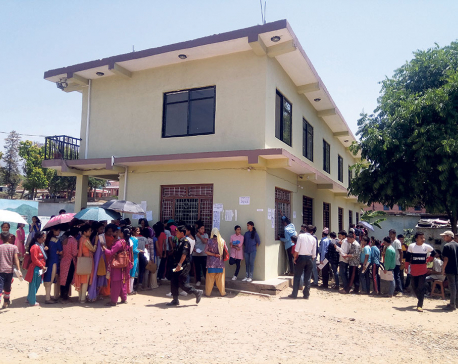
More students switching to community schools from private schools
SURKHET, April 19: Bandana Khadka of Birendranagar-3 recently admitted her two sons to one of the oldest community schools of the... Read More...
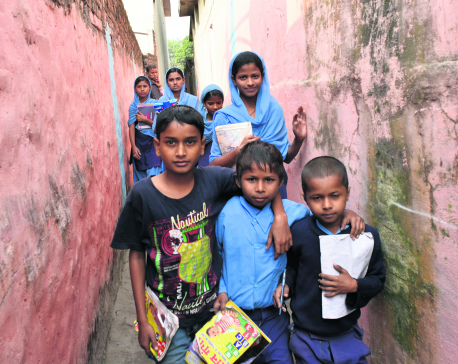
In lack of good schools in Siraha, children go to Indian schools
SIRAHA, Dec 11: There are ample of private and community schools in the district. However, many Nepali children go to Indian... Read More...
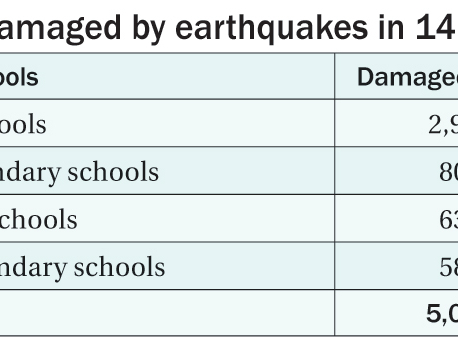
Quake-hit schools in 31 districts to be rebuilt within 3 years
KATHMANDU, Aug 10: Hundreds of students in earthquake-hit districts will have to study under tents and inside cracked buildings risking... Read More...






Just In
- CAN adds four players to squad for T20 series against West Indies 'A'
- ‘Precast' technology introduced in the construction of bridges along Muglin-Pokhara road
- Leopard attack injures young man in Kanchanpur
- SC rejects writ petition filed against Home Minister Lamichhane
- Nepal and China sign two agreements in the presence of Finance Minister Pun
- Pun released on bail in Supreme Cooperative fraud case
- Govt should not look for enforcing populist budget for next FY: Former finance ministers
- DoFE requests relevant parties to provide essential facilities to foreign workers traveling abroad












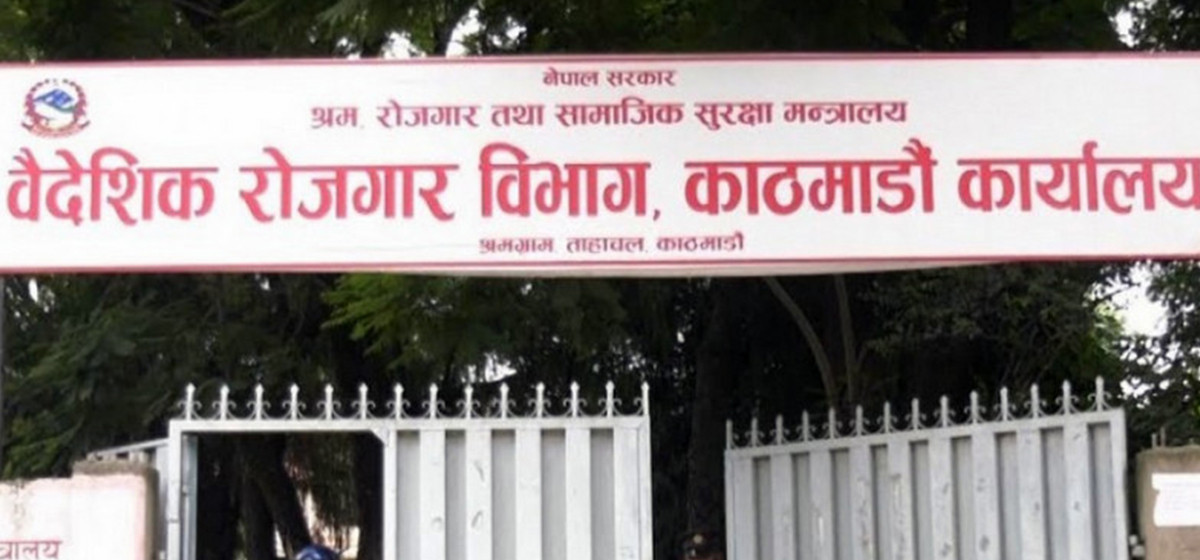
Leave A Comment